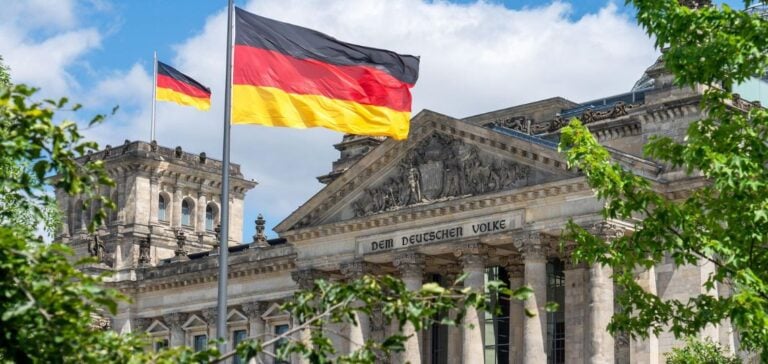Germany’s energy transition, long considered a European climate benchmark, experienced a slowdown in 2024. According to a report by Agora Energiewende, greenhouse gas (GHG) emissions decreased by just 3%, compared to a record 10% drop in 2023. This deceleration highlights the challenges of maintaining a steady pace in decarbonizing energy-intensive sectors.
The data shows a total reduction of 18 million tons of CO₂ equivalent in 2024, allowing Germany to exceed its national climate targets. However, this achievement is largely attributed to the exceptional performance of the energy sector, while other sectors struggle to advance.
Sectors facing challenges
Transport and buildings remain the weak links in Germany’s transition. Emissions in these areas showed no significant improvement in 2024. Meanwhile, the industrial sector recorded a slight 2% increase in emissions, underscoring the lack of significant structural reforms.
The sluggish progress is attributed to a drop in investments in environmentally friendly technologies. Sales of heat pumps, critical for modernizing the residential sector, fell by 44% in 2024. Registrations of electric vehicles also declined by 26%.
Energy sector leads by example
Despite these setbacks, the electricity production sector continues to demonstrate remarkable progress. In 2024, renewable energy sources such as wind, solar, and biomass accounted for 59% of total electricity production, up from 56% the previous year.
The share of coal in the energy mix dropped below 23%, confirming a positive trend. This transition is further marked by the complete phase-out of nuclear power in 2023. These results showcase the benefits of energy policies implemented in recent years in this sector.
A tense political context
As the February 2025 legislative elections approach, debates around funding the energy transition dominate the political scene. Incumbent Chancellor Olaf Scholz advocates for increased public investments to support struggling sectors. Conversely, his conservative rival Friedrich Merz opposes additional spending, emphasizing the need to reduce costs.
Political and economic uncertainty also discourages households and businesses from adopting sustainable solutions. Experts warn of a potential rebound in emissions should energy-intensive industries such as chemicals and steel experience an economic recovery.
European goals at stake
Despite a 48% reduction in emissions compared to 1990, Germany has yet to reach the European target of a 55% reduction by 2030. While progress in the energy sector signals promising dynamics, efforts must intensify in transport, buildings, and industry to avoid strategic delays.






















